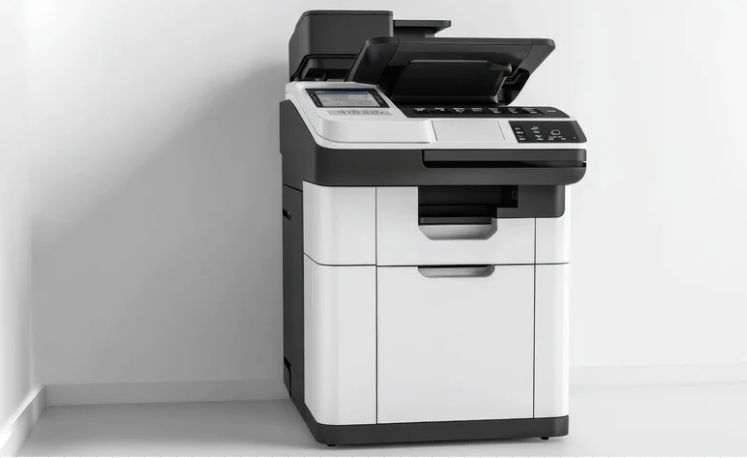How Artificial Intelligence is Transforming Copier Technology in 2025
The office copier has come a long way from being a simple reproduction machine. In 2025, Artificial Intelligence (AI) has accelerated copier evolution, transforming these devices into smart, secure, data-driven hubs for modern workplaces. Businesses across all industries are now leveraging AI-enabled copiers to increase productivity, strengthen security, optimize maintenance, and streamline document workflows.
Below, we explore the cutting-edge AI innovations shaping copier technology in 2025.

1. Predictive Maintenance: The End of Unexpected Breakdowns
Traditional copiers often fail without warning, causing downtime and expensive service calls. AI is changing that.
How AI Helps:
- Sensors monitor internal components to detect wear and anomalies.
- Machine-learning models predict failures before they occur.
- Automated alerts notify service teams or order replacement parts.
The result: organizations experience reduced downtime, longer device lifespan, and lower repair costs.
2. Intelligent Document Recognition and Processing
AI now powers advanced Optical Character Recognition (OCR) and Natural Language Processing (NLP), enabling copiers to “understand” documents rather than simply scan them.
Capabilities Include:
- Identifying document types (contracts, invoices, IDs).
- Extracting text, tables, and handwritten information with high accuracy.
- Auto-routing files to the correct department or application (e.g., HR, Accounting, CRM software).
- Automatically applying metadata and indexing documents for easy search.
This dramatically boosts workflow efficiency and eliminates manual data entry.
3. Enhanced Security with AI-Driven Protection
With cybersecurity threats on the rise in 2025, copiers—often overlooked endpoints—have become smarter and more secure.
AI-Powered Security Features:
- Behavioral analytics that detect suspicious print or scan patterns.
- User authentication via facial or voice recognition.
- Real-time threat detection, blocking unauthorized access attempts.
- Secure document release, ensuring sensitive files don’t sit on output trays.
AI transforms the copier into a first line of defense for confidential information.
4. Smart Energy Optimization
Sustainability is a priority in 2025, and AI contributes significantly to greener office operations.
Energy-Saving Enhancements:
- Learning user habits to power up only when needed.
- Optimizing print settings for minimal toner and power usage.
- Dynamic sleep modes based on environmental cues.
These improvements help organizations significantly cut energy costs and reduce carbon footprints.
5. Personalized User Experiences
AI now enables copiers to learn preferences and adapt to individual users.
Examples Include:
- Custom print/scan presets based on previous tasks.
- Voice-assisted operation (e.g., “Scan this to Accounting.”)
- Predictive suggestions—such as recommending double-sided printing.
This personalization helps employees work faster with less frustration.
6. Integration with Cloud and Smart Office Ecosystems
In 2025, AI-powered copiers seamlessly integrate into cloud platforms and smart office systems.
What This Means for Businesses:
- Instant access to documents from anywhere.
- Secure cloud backups with automated organization.
- Integration with collaboration tools like Microsoft 365, Google Workspace, and Slack.
- Automated workflows triggered by copier activity.
The copier becomes a connected intelligence node rather than a standalone device.
7. AI-Enhanced Print Fleet Management
For companies managing multiple devices, AI simplifies the process dramatically.
Fleet Analytics Capabilities:
- Monitoring usage patterns across departments.
- Predicting toner consumption for automated replenishment.
- Identifying underutilized machines to optimize placement.
- Providing insights to reduce printing costs.
This brings unprecedented transparency and control to operational planning.
Copiers Have Become Intelligent Digital Partners
AI has turned the 2025 copier into more than a machine—it’s a smart, proactive, secure, and highly efficient member of the digital workplace ecosystem. As AI capabilities continue to develop, we can expect even more advanced automation, deeper integration, and enhanced user experiences.




